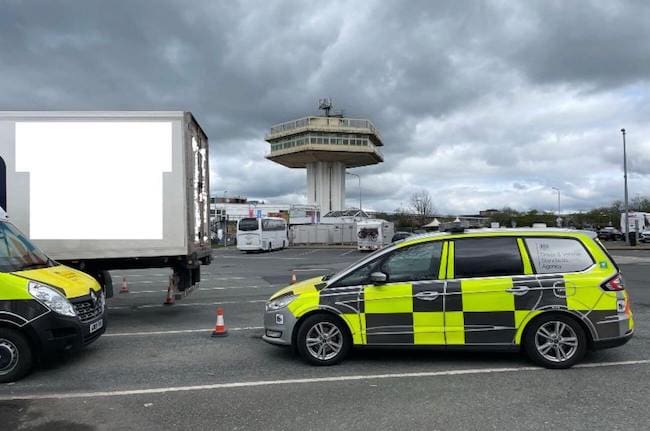DVSA plans to ramp up use of remote tachograph checking devices
By 2025, DVSA is planning to utilise automatic number plate recognition technology, roadside monitoring equipment and remote tachograph sensors to target offenders without stopping vehicles. The measures will also reduce their reliance on fixed estate, according to the agency’s latest strategic plan.
The updated DVSA Strategic Plan to 2025, which was published yesterday, outlines proposals to enhance services for customers, including HGV operators, over the next two years.
The Driver and Vehicle Standards Agency plans to review the evidence and opportunities, in collaboration with the industry and the Department for Transport (DfT), of changing the testing model for the Earned Recognition (ER) scheme by 2025.

DVSA to ramp up remote tachograph checking
Image by trans.INFO
The ER scheme is a voluntary initiative that recognises good vehicle operators’ efforts by allowing them to have fewer vehicle inspections. Therefore, the DVSA aims to identify opportunities for improving the ER scheme and ensure its effectiveness by reviewing its testing model, which includes assessing the quality of data collection and analysis, inspection procedures, and compliance standards.
DVSA is also promising improvements to vehicle testing, such as working with Authorised Treatment Facilities (ATFs) to provide better availability and choice of testing service for vehicle users.
Furthermore, the agency aims to introduce mobile inspection equipment for remote tachograph compliance checks by 2025, subject to trials.
In addition, DVSA intends to explore how under-vehicle inspection equipment could use artificial intelligence to make inspections more efficient. It plans to simplify digital services for ATFs and simplify the scheduling and management of tester requests to speed up HGV testing.
On top of this, the DVSA will refine its data analysis to target and prosecute fraudulent MOT garages while introducing a recognition scheme for ATFs and MOT garages that follow best practice.
The agency also plans to partner with more ATFs to increase competition and choice for customers and prioritise areas of the country with fewer ATFs to boost hazardous goods carriers’ options.
Finally, when it comes to HGV driver training, the government body is planning to increase the capacity of HGV driver bootcamps and driving tests and support and audit partner sites that carry out off-road exercise tests for HGV and bus drivers.
Written by Pölös Zsófia for trans.INFO © 5th April 2023.
For more help staying compliant, read about our DVSA Earned Recognition fleet and workshop software.
